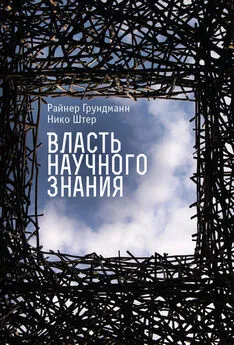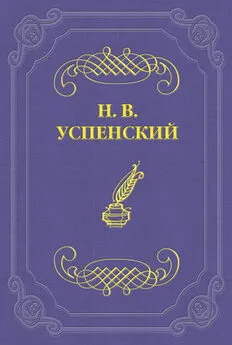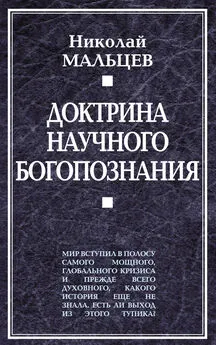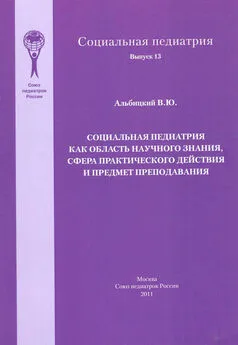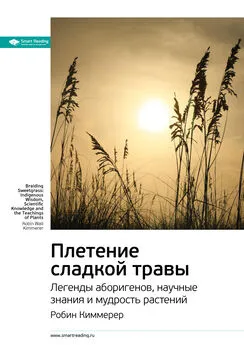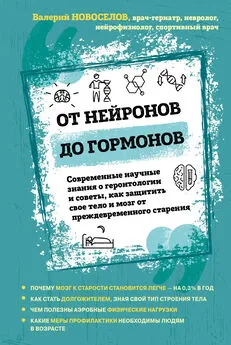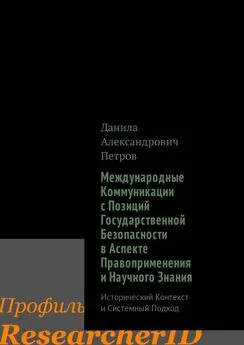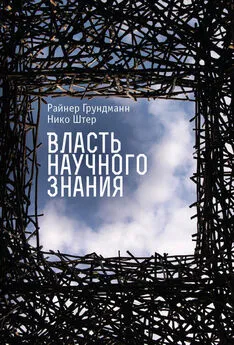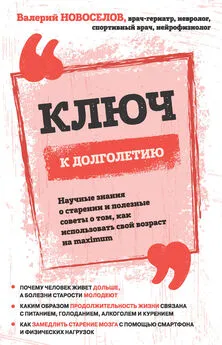Нико Штер - Власть научного знания
- Название:Власть научного знания
- Автор:
- Жанр:
- Издательство:Алетейя
- Год:2015
- Город:Санкт-Петербург
- ISBN:978-5-9905769-3-3
- Рейтинг:
- Избранное:Добавить в избранное
-
Отзывы:
-
Ваша оценка:
Нико Штер - Власть научного знания краткое содержание
В центре внимания социологов Нико Штера и Райнера Грундманна – вопрос о том, при каких условиях научное знание влияет на практическую политику и как именно организовано это влияние.
В поисках ответа авторы книги анализируют три кейса – экономическую теорию и политику Кейнса, науку о расах и ее роль в трагедии холокоста, а также исследования в области климатологии, их восприятие в обществе и их последствия.
Власть научного знания - читать онлайн бесплатно ознакомительный отрывок
Интервал:
Закладка:
Finkelstein, Norman. 1997. “Daniel Jonah Goldhagen’s ‘Crazy’ tte-sis: A Critique of Hitler’s Willing Executioners”, in: New Left Review 224. P. 39–87.
Fischer, Eugen. 1913. Die Rehobother Bastards und das Bastardisierungsproblem beim Menschen. Anthropologische und ethnographische Studien am Rehobother Bastardvolk in Deutsch-Südwestafrika. Jena.
Fischer, Frank. 1990. Technocracy and the Politics of Expertise. London: Sage.
Fiske, Donald W. 1986. “Specifity of Method and Knowledge in Social Sciences”, in: Fiske, Donald W., and Shweder, Richard A. (Eds.) Metha-theory in Social Science. Pluralism and Subjectivities. Chicago. P. 61–82.
Fitzgibbons, Athol. 1988. Keynes’ Vision. A New Political Economy. Oxford.
Flyvbjerg, Brent. 1998. Rationality and Power. Democracy in Practice. Chicago.
Flyvbjerg, Brent. 2001. Making Social Science Matter. Why Social Inquiry Fails and how it can Succeed Again. Cambridge.
Föger, Benedikt, und Taschwer, Klaus. Die andere Seite des Spiegels. Konrad Lorenz und der Nationalsozialismus. Wien.
Freeman, Christopher. 1977. “Economics of research and development”, in: Ina Spiegel-Rösing and Derek de Solla Price (Eds.) Science, Technology and Society: A Cross-Disciplinary Perspective. Beverly Hills, CA: Sage. P. 223–275.
Freeman, Howard S. 1963. “йе Strategy of Social Policy Research”, in: Social Welfare Forum. New York.
Freiburg, Jeanne. 1993. “Counting Bodies: üe Politics of Reproduction in the Swedish Welfare State”, in: Scandinavian Studies 65. P. 226–36.
Fourier J. B. J. 1824. “Remarques generales sur les temperatures du globe terrestre et des espaces planetaires”, in: Annales de Chimie et de Physique. Vol. 27. P. 136–167.
Fuller, Steve. 1992. “Knowledge as Product and Property”, in: Stehr, Nico, and Ericson, Richard V. (Eds.) The Culture and Power of Knowledge. Inquiries into Contemporary Societies. Berlin. P. 157–190.
Funtowicz, Silvio O. and Jerome R. Ravetz. 1993. “Science for the PostNormal Age”, in: Futures 25 (7). P. 735–755.
Funtowicz, Silvio O. and Jerome R. Ravetz. 1990. Uncertainty and Quality in Science Policy. Dordrecht.
Furner, Mary O. 1975. Advocacy and Objectivity: A Crisis in the Professionalization of American Social Science, 1865–1905. Lexington, Keng-tucky.
Furner, Mary O. 1996. “Social Scientists and the State: Constructing the Knowledge Base for Public Policy, 1880–1920”, in: Fink, Leon, and Leonard, Stephen T., and Reid, Donald M. (Eds.) Intellectuals and Public Life. Ithaca. P. 145–181.
Furner, Mary O., and Supple, Barry (Eds.) 1990a. The State and Economic Knowledge. The American and British Experiences. Cambridge.
Furner, Mary O., and Supple, Barry. 1990b. “Ideas, Institutions, and the State in the United States and Britain: An Introduction”, in: Furner, Mary O., and Supple, Barry (Eds.) The State and Economic Knowledge. The American and British Experiences. Cambridge. P. 3–39.
Galbraith, John K. 1971. A Contemporary Guide to Economics, Peace and Laughter. London.
Galbraith, John, K. 1973. “Power and the Useful Economists”, in: The American Economic Review 63. P. 1–11.
Galton, Francis [1892] 1962. Hereditary Genius: An Inquiry into Its Laws and Consequences . London.
Gans, Herbert J. 1975. “Social Science for Social Policy”, in: Horowitz, Irving L. (Ed.) The Use and Abuse of Social Science. New Brunswick, New Jersey.
Garfinkel, Harold. 1988. “Evidence for Locally Produced, Naturally Accountable Phenomena of Order”, in: Sociological Theory 6. P. 103–109.
Garver, Kenneth L., andBettylee Garver. 1991. “Historical Perspectives: Eugenics – Past, Present, and the Future”, in: American Journal of Human Genetics 49. P. 1109–1118.
Gergen, Kenneth J. 1986. “Correspondence versus Uatonomy in the Language of Understanding Human Acion”, in: Fiske, Donald W., Shweder, Richard A. (Eds.) Metatheory in Social Science. Pluralisms und Subjectivities. Chicago. P. 136–162.
Giddens, Anthony. 1984. The Constitution of Society. Outline of a Theory of Structuration. Cambridge.
Giddens, Anthony. 2009. The Politics of Climate Change. Cambridge: Polity Press.
Giddens, Anthony. 1987. “Nine Heses on the Future of Sociology”, in: Giddens, Anthony (Ed.) Social Theory and Modern Sociology. Oxford. P. 22–51.
Giersch, Herbert. 1961. Allegemeine Wirtschaftspolitik. Grundlagen. Wiesbaden.
Gieryn, Thomas F. 1995. „Boundaries of Science”, in: Sheila Jasanoff et al. (Eds.), Handbook of Science and Technology Studies. Housand Oaks, CA: Sage. P. 393–443.
Giesen, Bernd, und Schneider, Wolfgang L. 1984. „Von Missionaren, Technokraten und Politikern. Deutungsmuster als Determinanten der Interaktion von Wissenschaftlern und Praktikern“, in: Soziale Welt 35. S. 458–479.
Giesen, Bernd. 1983. “Moralische Unternehmer und öffentliche Diskussion: Überlegungen zur gesellschaftlichen Hematisierung sozialer Probleme”, in: Kölner Zeitschrift für Soziologie und Sozialpsychologie. S. 230–254.
Gilbertson, Tamra, and Oscar Reyes. 2009. “Carbon Trading: How It Works and Why It Fails”, in: Critical Currents No.7. Uppsala: Dag Hammarskjöld Foundation.
Gilman, Sander L. 1991. The Jew’s Body. New York: Routledge.
Gilman, Sander L. 1993. “Mark Twain and the Diseases of the Jew”, in: American Literature 65. P. 95–116.
Gilman, Sander L. 1996. Smart Jews: The Construction of the Image of Jewish Superior Intelligence. Lincoln: University of Nebraska Press.
Girod, Bastien, and Wiek, Arnim, and Mieg, Harald, and Hulme, Mike. 2009. “He Evolution of the IPCC’s Emissions Scenarios”, in: Environmental Science & Policy 12. P. 103–118.
Gobineau, Arthur de. 1915. The Inequality of Human Races. New York.
Godin, Benoit. 2006. “tte Lineas Model of Innovation”, in: Science, Technology & Human Values 31(6). P. 639–667.
Goodwin, Craufurd D. 1995. “tte Promise of Expertise: Walter Lippmann and the Policy Sciences”, in: Policy Sciences 28. P. 317–345.
Goffman, Irving. 1974. Frame Analysis. Cambridge: Harvard University Press.
Goldberg, David. 1993. Racist Culture. Philosophy and the Politics of Meaning. Oxford.
Goldhagen, Daniel Jonah. 1996. Hitler’s Willing Executioners. Ordinary Germans and the Holocaust. New York.
Goldstein, Judith. 1994. Ideas, Interests, and American Trade Policy. Ithaca: Cornell University Press.
Gormley, William T. 2007. “Public Policy Analysis: Ideas and Impacts”, in: Annual Review of Political Science 10. P. 297–313.
Görtemaker, Manfred. 2000. “Politischer Zeitgeist und Geopolitik – Über die zeitbedingten Voraussetzungen anwendungsorientierter Wissenschaft”, in: Diekmann, Irene, und Krüger, Peter, und Schoeps, Julius H. (Hg.) Geopolitik. Grenzgänge im Zeitgeist. Potsdam.
Gorz, Andre [1980] 1982. Farewell to the Working Class: An Essay on Post-Industrial Socialism. London: Pluto Press.
Gottweis, Herbert. 1998. Governing Molecules. The Discursive Politics of Genetic Engineering in Europe and the United States. Cambridge.
Götz, Aly, und Heim, Susanne. 1991. Vordenker der Vernichtung. Ausschwitz und die deutschen Pläne für eine neue europäische Ordnung. Hamburg.
Gouldner, Alvin W. „Toward a Radical Reconstruction of Sociology”, in: Social Policy I.
Gouldner, Alvin W. 1956. “Explorations in Applied Social Science”, in: Social Problems 3. P. 169–181.
Gouldner, Alvin W. 1957. “Theoretical Requirements of the Applied Social Sciences”, in: American Sociological Review 22. P. 92–102.
Gouldner, Alvin W. 1976. The Dialectic of Ideology and Technology. The Origins, Grammar, and Future of Ideology. New York.
Gouldner, Alvin W. 1979. The Future of Intellectuals and the Rise of the New Class. A Frame of Reference, Theses, Conjectures, Arguments, and an Historical Perspective on the Role of Intellectuals and Intelligentsia in the International Class Contest in the Modern Era. New York.
Gourevitich, Peter Alexsis. 1984. “Breaking with Orthodoxy: üe Politics of Economic Responses to the Depression of the 1930s”, in: International Organization 38. P. 95–130.
Graham, Loren R. 1977. “Science and Values: The Eugenics Movement in Germany and Russina in the 1920s”, in: American Historical Review 82. P. 1133–1164.
Gramsci, Antonio. 1971. Selections from the Prison Notebooks of Antonio Gramsci. Edited and translated by Q. Hoare and G. Smith. London: Lawrence & Wishart.
Granovetter, Mark. 1978. “Threshold Models of Collective Behavior”, in: American Journal of Sociology 83. P. 1420–1443.
Grant, Robert M. 2003. “Strategic Planning in a Turbulent Environment”, in: Strategic Management Journal 24 (6). P. 491.
Green, Warren. 1984. “tte Fate of the Jewish Comminities, Ashkenazim, Krimtchaks and Kariats”, in: Jewissh Social Studies 46. P. 169–176.
Greene, Wade. 1974. “Economists in recession”, in: New York Times Magazine May 12. P. 64.
Grice H. P. 1975. “Logic and Conversation”, in: Cole P. et al. (Eds.) Syntax and Sematics. Volume 3: Speech Acts. New York. P. 41–58.
Grubb M., Vrolijk C., Brack D. 1999. The Kyoto Protocol. A Guide and Assessment. London.
Grundmann, Reiner. 2011 ‘”Climategate” and the Scientific Ethos’, Science, Technology & Human Values (under review).
Grundmann, Reiner. 2009. “The Role of Expertise in Governance Processes”, in: Forest Policy and Economics 11. P. 398–403.
Grundmann, Reiner. 2007. “Climate change and knowledge politics”, in: Environmental Politics 16. P. 414–432.
Grundmann, Reiner. 2006. “Ozone and Climate: Scientific Consensus and Leadership”, in: Science, Technology & Human Velues 31. P. 73–101.
Grundmann, Reiner. 2001. Transnational Environmental Policy: Reconstructing Ozone . London: Routledge.
Grundmann, Reiner. 2002. “Transnational Policy Networks and the Role of Advocacy Scientists: From Ozone Layer Protection to Climate Change”, in: Brohm R., Dingwerth K. (Eds.) Global Environmental Change. Potsdam: Potsdam Institute for Climate Impact Research. P. 405–414.
Grundmann, Reiner, and Mike Scott. 2011 “Disputed climate science in the media: do countries matter ?” Aston University, Manuskript.
Grundmann, Reiner, and Ramesh Krishnamurthy. 2010. “tte Discourse of Climate Change: A Corpus-Based Approach”, in: Critical Approaches to Discourse Analysis across Disciplines 4 (2). P. 125–146.
Читать дальшеИнтервал:
Закладка:
